A registered dietitian nutritionist, who specializes in oncology nutrition, shared which grocery store meats she considers safe to eat and which she would avoid.
Nichole Andrews (@oncology.nutrition.rd) posted a TikTok in April that shows her in the meat section of a grocery store. The text overlay reads, “Processed meats increase colon cancer risk! Cancer dietitian shares unprocessed safe meat choices (that do not increase colon cancer risk).”
According to the American Institute for Cancer Research, compounds found in processed meat linked to cancer are produced from smoking, curing, and nitrate-based additives. “Evidence shows that even small amounts of processed meat eaten regularly increase the risk of colorectal cancer than red meat that is unprocessed,” the article states. That includes sausages, ham, bacon, hot dogs, and salami. The AICR recommends you eat no more than 12 to 18 ounces of beef, pork and other red meats per week.
@oncology.nutrition.rd Link in bio to get my cancer prevention course where you get lifetime access, and learn step-by-step on how to reduce risk of recurrence of all cancers to feel confident that you’re doing all you can for your health! #cancerfree#cancerwarrior#cancerfighter #oncology #breastcancersurvivor #cancerresearch #chemotherapy #chemo #cancercare#cancermeme#cancerprevention#cancersupport#cancersurvivors #cancertreatment#breastcancerfree #breastcancerfighter #kidneycancer #prostatecancerawareness #radiationtherapy #hormonetherapy #sarcomaawareness #triplenegativebreastcancer #metastaticbreastcancer #hodsgkinslymphoma #cancerwigs #chemosucks #chemohair #pancreaticcancerawareness #sarcoma #testicularcancer ♬ original sound – Nichole | Oncology Dietitian
Here are a few of the highlights from Andrews’ meat section tour.
Sausages
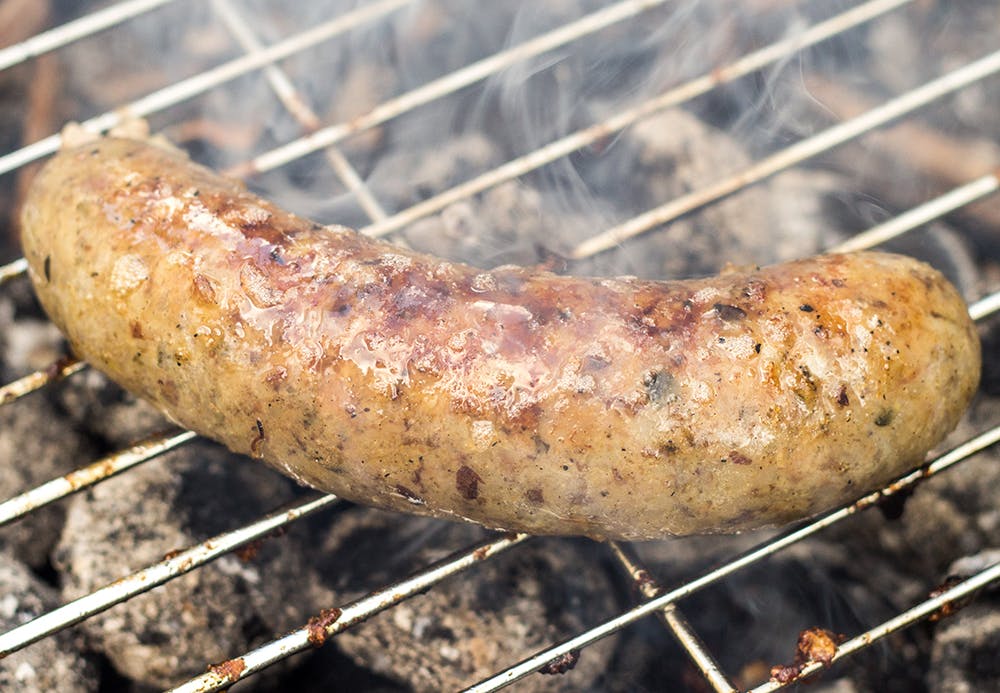
At least you can find an alternative for one of the meats. “Raw sausages that you have to cook at home are completely safe and do not increase cancer risk,” Andrews says.
In a Guardian article, a British woman researched this question and was disappointed to learn that while purchasing higher quality sausage is better than buying one with tons of additives, dietitians say you should focus on limiting your intake overall. That’s because even the fancy sausage can have higher levels of sodium and fat than ideal.
Impossible products
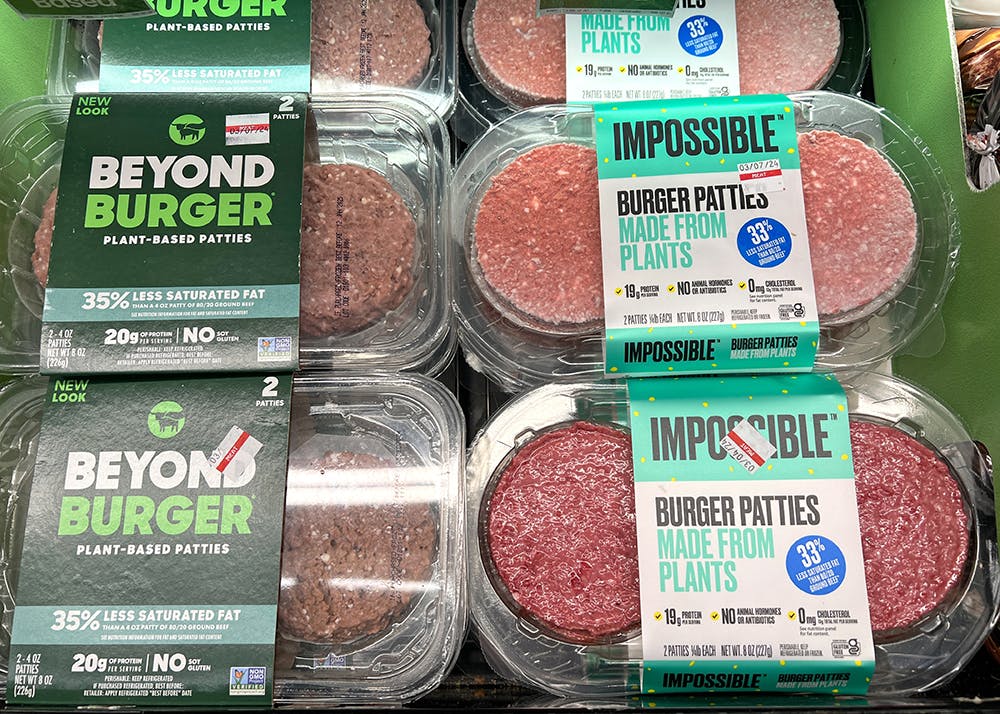
“All the Impossible products are completely safe,” Andrews says.
And there is some evidence to back her up on this statement.
A blog post from the American Institute for Cancer Research says, “Whole grains, vegetables and other plant foods are packed with dietary fiber, nutrients and phytochemicals. Evidence is clear that dietary fiber lowers colorectal cancer risk; studies point to other healthful compounds lowering risk of cancers. Plant foods can help people stay a healthy weight, which is one of the most important steps people can take to reduce the risk of many common cancers.”
Pork (with and without herbs)
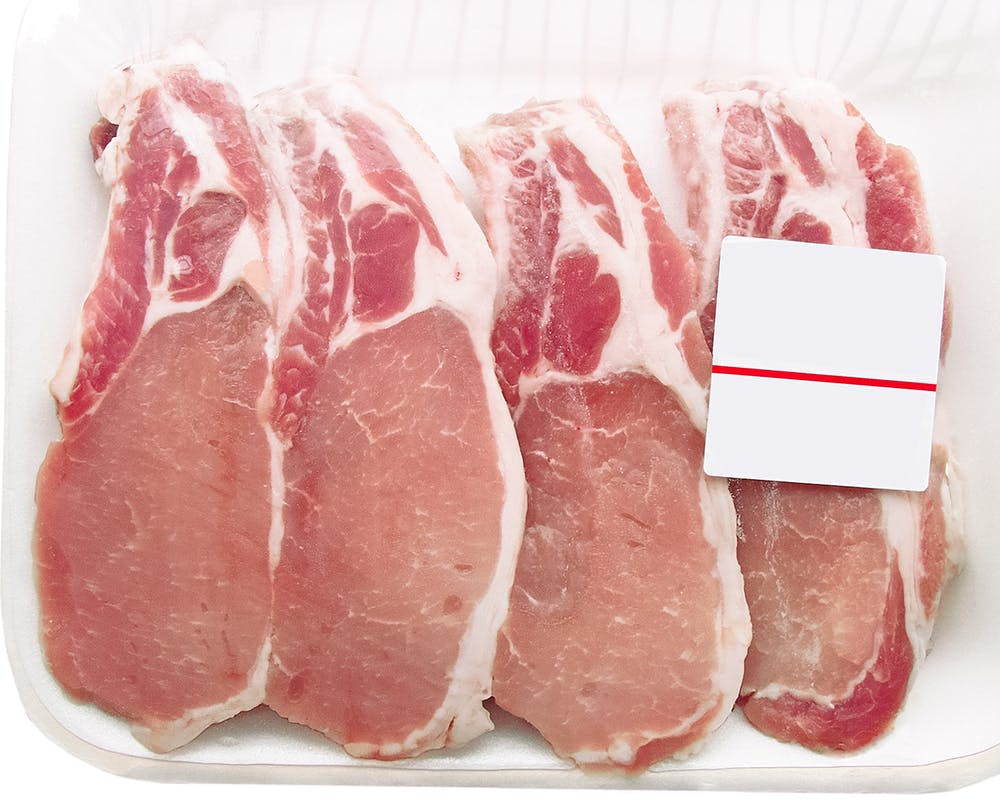
“This is, again, just raw pork,” she says. “This is a safe choice. Here’s raw pork, but they’ve added herbs to it. Not processed.”
The distinction between processed and unprocessed meat may in fact be significant. A 2022 article in Nature Medicine found “weak evidence of association between unprocessed red meat consumption and colorectal cancer, breast cancer, type 2 diabetes and ischemic heart disease. Moreover, we found no evidence of an association between unprocessed red meat and ischemic stroke or hemorrhagic stroke.”
Red meat
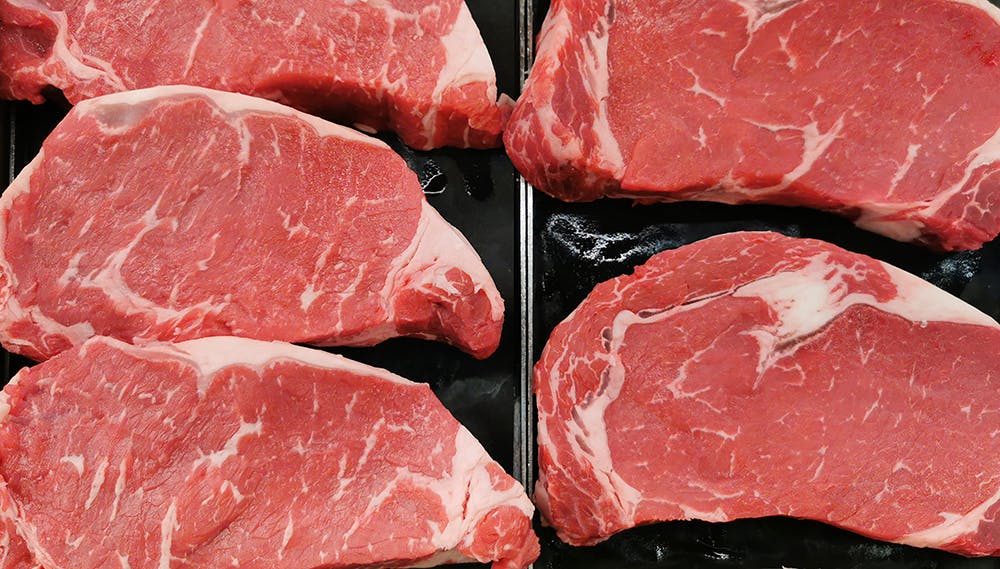
“Here’s ground beef,” Andrews says. “Ground beef is going to be fine. Totally safe. Does not increase cancer risk.”
Andrews is correct about this.
According to the American Institute for Cancer Research, there isn’t a substantiated link between grinding meat and an increased risk of colorectal cancer. “You don’t need to be as cautious with fresh ground meat,” the article states. “However, fresh red meat – which refers to beef, lamb and pork – whether it is solid (like a steak or roast) or ground (like meatloaf or hamburger) is linked to colorectal cancer risk when consumed in amounts beyond 18 ounces per week.”
Ground chicken and turkey
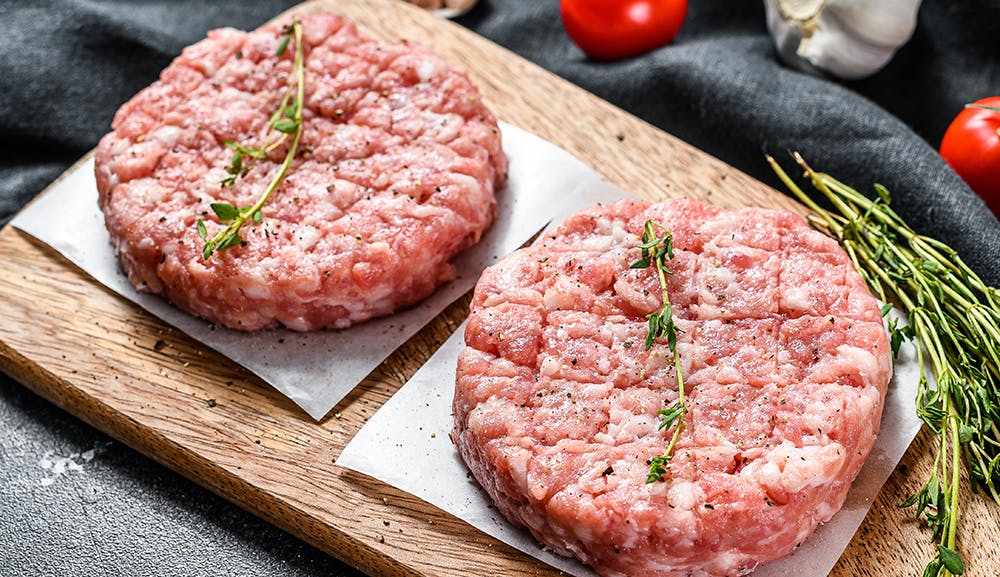
“Ground chicken—this is going to be a better choice than red meat,” Andrews says. “It’s going to be more lean. And also, ground turkey. Again, this is preferred and recommended over the red ground beef.”
This statement is also backed by the AICR, which said, “If you’re eating ground meat beyond 18 ounces per week, switch some or all of it to lean (7% fat or less) ground turkey or ground chicken.”
Andrews’ video has amassed more than 82,000 views as of Wednesday morning. In the comments section, users thanked her for her advice.
One user wrote, “Thank you! The ‘processed meat’ thing is so confusing to me.”
A second user wrote, “Thanks so much for clarifying- I thought the raw Italian sausage I was buying was counted as processed. So glad it’s not!”
Another person noted, “So all the bros on the carnivore diet are increasing their risk of colon cancer by eating all that beef?”
The Daily Dot reached out to Andrews via TikTok comment and direct message for comment.
The internet is chaotic—but we’ll break it down for you in one daily email. Sign up for the Daily Dot’s web_crawlr newsletter here to get the best (and worst) of the internet straight into your inbox.


